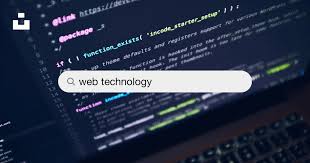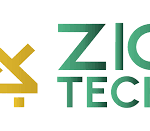Web technology is an essential field of study in today’s digital age. As the internet continues to evolve, the importance of understanding web technologies has grown. From basic HTML to complex frameworks like React and Angular, web development skills are in high demand. For students aspiring to build a career in web development, mastering web technology concepts and excelling in exams is crucial.
In this article, we will delve into the significance of web technology question papers, how to prepare effectively for them, and the key topics you should focus on to ensure your success.
What is Web Technology?
Before diving into the specifics of web technology question papers, it’s essential to understand what web technology encompasses. Web technology refers to the tools and techniques used to create, manage, and optimize websites and web applications. It includes various technologies like:
- HTML (HyperText Markup Language): The backbone of any web page, used for structuring content.
- CSS (Cascading Style Sheets): Used to define the layout and style of web pages.
- JavaScript: A programming language that brings interactivity and dynamic content to websites.
- Web Frameworks: Tools like React, Angular, and Vue.js that make web development easier and more efficient.
- Backend Technologies: Servers, databases, and programming languages like Node.js, Python, and PHP that power web applications.
- Web Security: Understanding how to protect web applications from security threats like SQL injection, cross-site scripting (XSS), etc.
Mastering these core concepts is vital for anyone looking to pursue a career in web development or web technologies.
The Importance of Web Technology Question Papers
Question papers in web technology are designed to assess a student’s knowledge and practical skills in creating and managing web pages and applications. These papers typically consist of theoretical questions, practical problems, and sometimes even code snippets that need to be written or debugged. A solid understanding of web technologies is essential to answer these questions correctly.
Some common reasons why web technology question papers are crucial include:
- Assessing Core Knowledge: Web technology exams test the fundamental concepts like HTML, CSS, and JavaScript, which form the basis of web development.
- Practical Problem-Solving: Many exams include coding challenges that assess your ability to solve real-world problems, a critical skill in web development.
- Ensuring Industry Readiness: By testing the application of various web technologies, these exams help students prepare for the workforce and equip them with the skills needed for professional success.
- Improving Problem-Solving Skills: The practice of solving complex problems under exam conditions enhances a student’s problem-solving ability, which is a valuable trait for web developers.
Key Topics to Focus on for Web Technology Exams
Web technology question papers cover a range of topics, depending on the course curriculum and level of study. However, there are some key areas that frequently appear in exams and require focused preparation. Let’s break down some of the most important topics to concentrate on.
1. HTML and CSS Fundamentals
HTML and CSS are the foundation of every web page. Questions on these topics test your understanding of structuring a page and applying styles. Key concepts to focus on include:
- HTML Tags: Knowing how to use tags for headings, paragraphs, lists, links, forms, etc.
- CSS Properties: Understanding how to style elements using properties like
color,background,border,font-size, andpadding. - Box Model: The concept of the content, padding, border, and margin is fundamental to understanding the layout of a page.
- Responsive Design: Learning how to create responsive web pages that work on different devices using media queries.
2. JavaScript and DOM Manipulation
JavaScript adds interactivity to web pages, making it one of the most important aspects of web development. Questions related to JavaScript will test your ability to manipulate the DOM (Document Object Model) and create dynamic content. Focus on:
- JavaScript Basics: Understanding variables, data types, loops, functions, and events.
- DOM Manipulation: Interacting with HTML elements through JavaScript to change content, styles, or attributes.
- Event Handling: Handling user interactions like clicks, form submissions, and key presses.
- Error Handling: Using
try-catchblocks to manage errors and exceptions in your JavaScript code.
3. Web Frameworks and Libraries
In modern web development, frameworks like React, Angular, and Vue.js have become integral. While it may depend on the specific course, having knowledge of these frameworks will give you an edge. Prepare by learning:
- React Basics: Understanding components, JSX, props, state, and how to build single-page applications.
- Angular and Vue.js: Understanding the basic structure, components, directives, and services in these frameworks.
- Bootstrap: This popular CSS framework is essential for creating mobile-first, responsive web designs quickly.
4. Web Security
Web security is an increasingly important aspect of web development, as cyber threats continue to evolve. Common topics include:
- SSL/TLS: How to use Secure Sockets Layer (SSL) or Transport Layer Security (TLS) to secure data during transmission.
- Cross-Site Scripting (XSS): Preventing malicious scripts from being injected into web pages.
- SQL Injection: Protecting databases from being accessed via malicious SQL queries.
- Authentication and Authorization: Understanding how to implement secure login systems using tokens, OAuth, or session management.
5. Server-Side Technologies
While web technologies focus largely on the front-end, many exams also assess knowledge of server-side technologies. Topics to review include:
- Node.js: Learn about this server-side JavaScript runtime environment.
- PHP: A popular server-side scripting language for creating dynamic web pages.
- Databases: Understanding how to work with databases (SQL/NoSQL), including CRUD operations (Create, Read, Update, Delete).
- APIs: Learn how to create and interact with RESTful APIs, including understanding HTTP methods (GET, POST, PUT, DELETE).
6. Web Hosting and Deployment
Deploying a website and hosting it on a server is a crucial part of the web development process. Study the following concepts:
- Web Servers: Understanding how web servers like Apache, Nginx, and IIS work.
- Deployment Tools: Familiarize yourself with deployment tools such as Git, FTP, and CI/CD pipelines.
- Cloud Hosting: Learn how to host websites on cloud platforms like AWS, Google Cloud, and Azure.
How to Prepare for Web Technology Question Papers
- Practice Coding: Web technology exams often include practical coding questions. The best way to prepare is by writing code regularly. Use platforms like CodePen, JSFiddle, and Repl.it to practice web development.
- Review Previous Papers: Past question papers give insight into the types of questions that may appear in your exam. It helps you identify common patterns and frequently asked topics.
- Understand Key Concepts: Rather than memorizing code, focus on understanding the concepts behind it. When you truly understand how something works, it’s easier to apply that knowledge during exams.
- Participate in Mock Tests: Mock exams are a great way to test your readiness. Time yourself while taking these tests to simulate the real exam experience.
- Use Online Resources: Leverage resources like MDN Web Docs, W3Schools, and online tutorials to clarify concepts that you find difficult. YouTube is also a great place to find video tutorials on web technologies.
Conclusion
Web technology question papers are an essential part of web development education, testing both theoretical knowledge and practical skills. With the rapid evolution of the web, it’s important to stay updated with the latest tools, frameworks, and technologies.
By focusing on the key areas mentioned above—HTML/CSS, JavaScript, web frameworks, web security, and server-side technologies—you’ll be well on your way to acing your web technology exams. Consistent practice, thorough preparation, and a deep understanding of the concepts will help you succeed in your exams and set you up for a successful career in web development.



